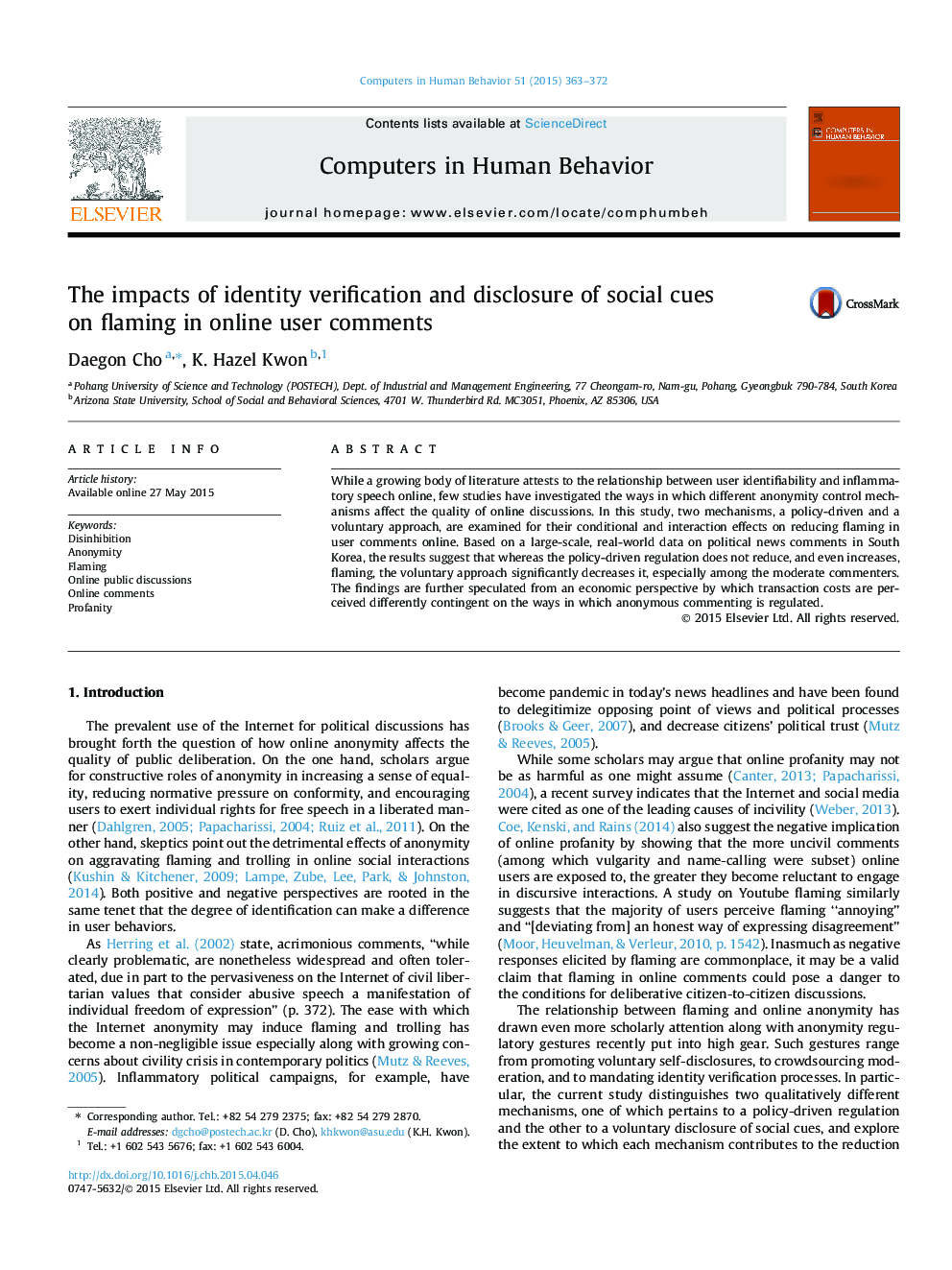| Article ID | Journal | Published Year | Pages | File Type |
|---|---|---|---|---|
| 10312572 | Computers in Human Behavior | 2015 | 10 Pages |
Abstract
While a growing body of literature attests to the relationship between user identifiability and inflammatory speech online, few studies have investigated the ways in which different anonymity control mechanisms affect the quality of online discussions. In this study, two mechanisms, a policy-driven and a voluntary approach, are examined for their conditional and interaction effects on reducing flaming in user comments online. Based on a large-scale, real-world data on political news comments in South Korea, the results suggest that whereas the policy-driven regulation does not reduce, and even increases, flaming, the voluntary approach significantly decreases it, especially among the moderate commenters. The findings are further speculated from an economic perspective by which transaction costs are perceived differently contingent on the ways in which anonymous commenting is regulated.
Related Topics
Physical Sciences and Engineering
Computer Science
Computer Science Applications
Authors
Daegon Cho, K. Hazel Kwon,
